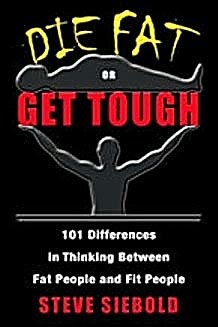The UK and Ireland are the worst places in Europe to live, according to the latest uSwitch.com Quality of Life Index. While the UK enjoys the highest net household income in Europe, quality of life is the poorest, proving that there is more to good living than money. Long working hours, lower holiday entitlement and a high cost of living all contribute to a poor quality of life in the UK – and it’s not much better for the Irish either:

•Best quality of life can be found in France and Spain. The worst can be found in the UK and Ireland
•Depressing: UK workers can expect to work 3 years longer and die 2 years younger than their French counterparts
•Cost of living: consumers in the UK are paying above the European average for fuel, food, alcohol and cigarettes
•Health and education: the UK’s spend on healthcare and education is below the European average. Only Ireland and Poland spend less on healthcare, but Ireland has more doctors and hospital beds and Poland has more beds than the UK
•Longer life: Germany, Spain, France, Italy, the Netherlands and Sweden all enjoy longer life expectancy than the UK
•Retirement age in the UK has dropped, but it is still the 4th highest in Europe
•UK enjoys highest net household income, but workers in the UK get lowest holiday entitlement in Europe.
The latest uSwitch.com European Quality of life Index reveals that people in the UK are still getting a raw deal compared with their European neighbours. Despite the fact that the UK enjoys the highest net household income in Europe – GBP35,730 a year, which is more than GBP10,000 a year above the European average – this does not translate into a good life. Instead, people in the UK can expect to work longer, die younger and enjoy lower standards of healthcare and education.
The uSwitch.com study examined 17 factors in order to understand where the UK sits in relation to nine other major European countries. Variables such as net income, taxes and the cost of essential goods, such as fuel, food and energy bills, were examined along with lifestyle factors, such as hours of sunshine, holiday entitlement, working hours and life expectancy to provide a complete picture of the quality of life experienced in each country.
The findings show that people in the UK and Ireland have the poorest quality of life, while the French and Spanish enjoy the highest. The UK gets the lowest number of days holiday per year, pays the highest prices for diesel and food and spends below the European average (as a percentage of GDP) on health and education. It also has the 4th lowest life expectancy in Europe and workers retire later than most of their European counterparts.
France, which topped the league, enjoys one of the lowest retirement ages, has the longest life expectancy in Europeand spends the most on healthcare Its workers also benefit from 34 days holiday a year – compared with only 28 in the UK – and it comes only behind Spain and Italy for hours of sunshine.
Spain, which topped the league last year, enjoys the most sunshine – but it has more to smile about than just that. The Spanish can expect to live a year longer than people in the UK, enjoy the highest number of days holiday in Europe (41 days a year) and pay the lowest fuel prices. And as if that’s not enough to celebrate, they are paying the lowest prices for alcohol too.
This year’s index does not reveal the full impact of the recession – this can be expected to show next year. However, France officially went into recession in May 2009 and has already emerged again (August 2009). This quick turnaround could see it maintaining a high quality of life despite the economic difficulties facing most European nations. Spain entered recession in February 2009 with no official announcement as to when it is likely to exit. Poland is the only country in the study not to have gone into recession and it is widely expected to avoid it throughout 2009.
Out of the two countries experiencing the lowest quality of life, Ireland went into recession first in September 2008 while the UK officially went into recession in January 2009. Both are yet to exit and the impact on the UK is expected to be severe and long lasting. Unemployment has already hit a 14 year high at 2.47 million workers or 7.9% of the workforce – the highest rate since 1995. Even with the UK due to start recovery shortly, the jobless toll is still expected to rise with the British Chambers of Commerce predicting numbers exceeding 3 million next year.
Importantly, as politicians start to plot a way out of the financial mire, quality of life in the UK could suffer even more. This is because public spending is likely to be reined in so that the amount spent in the UK on education and health could fall. The Labour Government has already indicated GBP2 billion of cuts to come on education but it has so far rejected advice from management consultants to cut the NHS workforce by 10% over the next 5 years. The UK is already spending below the European average (as a percentage of GDP) on both health and education.
Health
The UK is spending below the European average (as a percentage of GDP) on both education and health. The largest shortfall is on health though, where the UK is spending 8.2% of GDP compared with the European average of 9%. Only Poland and Ireland spend less on health than the UK. France is the biggest investor, spending 11% of GDP on health, closely followed by Denmark and Germany.
The UK has 2.1 doctors per 1,000 people and 3.9 hospital beds. In contrast, France has 3.4 doctors and 7.3 beds. Poland, which spends less than the UK on health, has more hospital beds – 5.2 beds per 1,000 people. While Ireland spends less than the UK, but achieves a greater number of doctors per 1,000 and a higher number of hospital beds (2.9 doctors per 1,000 and 5.6 beds).
Lower spending on education and health could also be a contributing factor to the UK’s lower than average life expectancy, which is 4th lowest in Europe. There is some evidence to suggest that people who are better educated live longer and in better health than those who are less educated. This link between education and health cannot be explained by behavioural differences alone and has led scholars to suggest that having the right educational policies could improve a nation’s health considerably.
As well as shorter lives, people in the UK can expect to work for longer than most of their European neighbours too. The average European retirement age is 62 years old, however UK workers can expect to carry on working for 6 months longer than this. Poland has the lowest retirement age at just over 59 years old, closely followed by France. In real terms, these differences mean that UK workers can expect to work 3 years longer and die 2 years younger than their French counterparts.
Well being
Workers in the UK put in an average of 37 hours a week. Spain, France, Italy and Poland all work longer hours, but they also benefit from more days off. While workers in the UK get the lowest holiday entitlement in Europe – 28 days a year – the Spanish benefit from 41 days a year, the highest entitlement. As a result, UK workers can expect to work an average of 5 days more a year than their European counterparts and 13 days a year more than their Spanish counterparts. Over a lifetime of work (45 years) a Spanish worker could expect to have over 5 years off as holiday, while a UK worker could expect to have just over 3 years off.
Ann Robinson, Director of Consumer Policy at uSwitch.com, says: “There is more to good living than money and this report shows why so many Brits are giving up on the UK and heading to France and Spain. We earn substantially more than our European neighbours, but this level of income is needed just to keep a roof over our heads, food on the table and our homes warm. It’s giving us a decent standard of living, but it’s not helping us achieve the quality of life that people in other countries enjoy.
“For too long the focus in the UK has been on standard of living rather than quality of life. As a result we have lost all sense of balance between wealth and well-being. The recession could prove to be a turning point, forcing us to re-evaluate our way of life, get back to basics and to the things that really count. Consumers are already beginning to do this – the Government and its policymakers would do well to follow suit.”
Via EPR Network
More Healthcare press releases











